|
Every age.
Every race and ethnicity. Every class and socioeconomic status. Every gender identity and sexual orientation. Every size, shape, height, weight & disability. 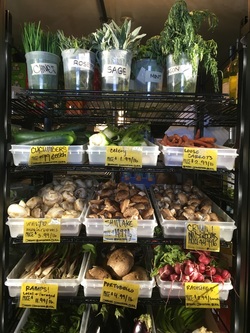
Alice Waters has been a champion of seasonal, local, sustainably produced foods, garnering widespread acclaim and showing the world that the true secret to good cooking is starting with the best-tasting ingredients. Read more from The Art of Simple Food. Everyone needs time alone, without the expectations of others, to recharge.
When do you spend quality time with yourself? Hobbies or personal wellness goals are a great way to formally make this part of your life. Work with a wellness coach on your most important relationship: Me, Myself & I.  The Trail Is Waiting The Appalachian Trail is the longest hiking-only footpath in the world, ranging from Maine to Georgia. Explore the trail by state.  We can add another benefit to exercise to our already long list. According to this great infographic from Fix.com, Your Brain on Exercise, “[regular exercise] can improve learning and mental performance, encourage the pituitary gland to release endorphins, and reduce sensitivity to stress, depression, and anxiety.” Exercise is particularly important for children with developing brains, and regular doses often improves academic performance as, “a link has also been established between attention span and concentration and exercise.” Learn more by viewing the full infographic: Your Brain on Exercise. "The best way to capture moments is to pay attention. This is how we cultivate mindfulness. Mindfulness means being awake. It means knowing what you are doing. But when we start to focus in on what our own mind is up to, for instance, it is not unusual to quickly go unconscious again, to fall back into an automatic-pilot mode of awareness. These lapses in awareness are frequently caused by an eddy of dissatisfaction with what we are seeing or feeling in that moment, out of which springs a desire for something to be different, for things to change.
You can easily observe the mind's habit of escaping from the present moment for yourself. Just try to keep your attention focused on any object, for even a short period of time. You will find that to cultivate mindfulness, you may have to remember over and over again to be awake and aware. We do this by reminding ourselves to look, to feel, to be. It's that simple ... checking in from moment to moment, sustaining awareness across a stretch of timeless moments, being here, now." From Wherever You Go There You Are by Jon Kabat-Zinn 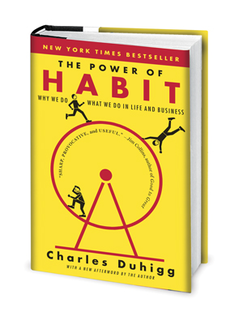 The key is to take advantage of the 3-step neurological process that creates a habit. First, choose a cue, like leaving your running shoes by the door, then pick a reward — say, a piece of chocolate when you get home from the gym. Eventually, when you see the shoes, your brain will start craving the reward, which will make it easier to work out day after day. View an infographic based on The Power of Habit to learn more. 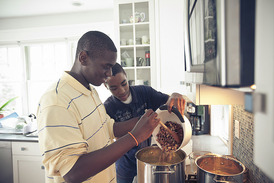 Resolve to eat better and spend more time with loved ones by cooking more with friends and family in this winter. Read four ways to cook more with family from ChopChop. ChopChop is a non-profit organization whose mission is to inspire and teach kids to cook real food with their families. "You can compare a child’s body to a building under construction. A lot of different materials are needed to build it and to keep it in good repair. But a human being is also a kind of machine that’s running. It requires fuel for energy, and other substances to make it work properly, just as an automobile needs gasoline, oil, grease and water.
To do this, keep a balanced attitude. You don’t judge foods on calories alone, or on vitamins alone, or on minerals alone. Everybody in the long run needs a balance of low and high-calorie foods as well as a balance in other respects in the diet. Fortunately, there are a number of good books available and many of which include a variety of recipes. As important as consulting a book, however, is encouraging your child to eat a variety of vegetables at an early age." Read the full article by Dr. Benjamin Spock, MD. 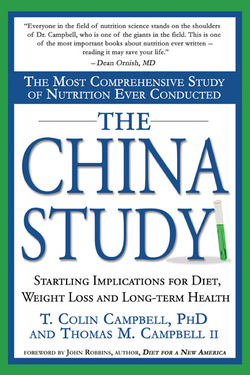 The China Project offered a rare opportunity to study disease in a precise manner because of the unique conditions that exist[ed at the time of the study] in rural China. Approximately 90% of the people in rural China live their entire lives in the vicinity of their birth. Because of deeply held local traditions and the absence of viable food distribution, people consume diets composed primarily of locally produced foods. In addition, there are dramatic differences in the prevalence of disease from region to region. Various cardiovascular disease rates vary by a factor of about 20-fold from one place to another, while certain cancer rates may vary by several hundredfold. Buy The China Study on Amazon.  Ingredients 3 Tablespoons extra virgin olive oil 2 Leeks (thinly sliced) 1 lb. Carrots (peeled and thinly sliced) 1 Medium-sized potato (peeled and coarsely diced) 1 1/2 tsp. Peeled and minced/grated fresh ginger 5 Cups chicken or vegetable stock 1/2 Cup fresh orange juice 2 Tsp. grated orange zest Salt and freshly ground white pepper Thin orange slices for garnish (optional) Serves 4 to 6 Directions In a large saucepan over medium heat, warm the olive oil. Add the leeks and sauté until just slightly softened, about 3 minutes. Add the carrots, potato and ginger and sauté until the vegetables are just softened, about 5 minutes more. Add the stock, cover partially and simmer until the vegetables are completely softened, about 20 minutes. Remove from the heat. In a blender or food processor, puree the soup in batches, leaving some texture, and return the soup to the pan. Set the pan over medium heat and stir in the orange juice and zest. Season with salt and white pepper. Ladle the soup into warmed bowls and garnish each serving with an orange slice and a sprig of mint. Adapted from Williams-Sonoma Collection Series, Soup, by Diane Rossen Worthington.  The relationship between physical environment and wellbeing is sometimes overlooked, yet having a calming safe haven from the demands of the world is often the key to recharging one’s batteries. When you return from a long day what awaits you? Do you face clutter, conflict and many more things to be done in the way of housework? If so it may be time to invest some time and thought into creating a place that will allow you to relax, be yourself and practice self-care. Check out this great Freshome.com article, How to Make Your Home Feel More Relaxing, for insight on where to start and specific room-by-room suggestions to optimize your home environment. 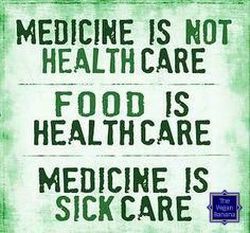 "The health care establishment is structured to profit from chemical and surgical intervention. Diet still takes the back seat to drugs and surgery. One criticism that is constantly leveled at the dietary argument is that patients will not make such fundamental changes. This criticism is not only wrong and insulting to patients; it is also self-fulfilling. If doctors do not believe that patients will change their diets, they will neglect to talk about diet, or will do it in an off-handed, disparaging way.” Except from T. Colin Campbell's, The China Study: The Most Comprehensive Study of Nutrition Ever Conducted and the Startling Implications for Diet, Weight Loss and Long-Term Health.  Ingredients 2 Cups chicken or vegetable broth 1/2 Cup unsweetened coconut milk 3 Cups canned pumpkin 1 Cup sliced onions, sautéed 3 Garlic cloves, roasted 3 Tablespoons brown sugar 1 Tablespoon adobo sauce (plus reserve more to add to taste per serving) Salt and freshly ground black pepper, to taste Directions 1. Place all ingredients into a Vitamix container in the order listed and secure lid 2. Select Variable 1 3. Turn machine on and slowly increase speed to Variable 10, then to High 4. Blend for 6-7 minutes or until heavy steam escapes from vented lid 5. Serve immediately or refrigerate overnight 6. Serve with the adobo sauce on the side, added to taste 7. Optional: Reheat and serve in a slow cooker Note: The adobo sauce does have heat so add slowly to taste. The soup is also wonderful without the adobo sauce for those that don't like spicy foods.  The T. Colin Campbell Center for Nutrition Studies (CNS) is a 501(c)3 nonprofit organization based in Ithaca, NY, home of Cornell University. Started in 2007 by T. Colin Campbell, PhD, and Megan Murphy, the Center grew out of T. Colin Campbell’s life work in nutritional research and the recognition of The China Study, the 2005 book co-authored with his son Thomas Campbell, MD. In 2009 CNS, in collaboration with eCornell, began offering the Certificate in Plant Based Nutrition. The certificate program has become a nationally-recognized nutrition education program, enrolling thousands of students who have gone on to use their knowledge in a variety of endeavors. In addition to the general public, CNS has helped educate a growing number of health professionals through its continuing education credit programs. Learn about working with a wellness coach that is an alumni of this program. 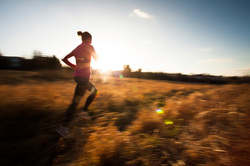 According to the New York Times, surprisingly few, it seems. According to a new review of studies related to running and health, jogging for as few as five or six miles per week could substantially improve someone’s health. The reviewers found that even with such skimpy mileage, runners generally weighed less and had a lower risk of obesity than people who jogged fewer than five miles per week or (more commonly) not at all. These runners also were less likely to experience high blood pressure, cholesterol problems, diabetes, strokes, certain cancers and arthritis than the barely- or nonrunners. “It seems like the maximum benefits of running occur at quite low doses,” said Dr. Carl J. Lavie, medical director of cardiac rehabilitation and prevention at the Ochsner Medical Center in New Orleans and lead author of the review, which was published in September in Mayo Clinic Proceedings. As little as “one to two runs per week, or three to six miles per week, and well less than an hour per week” can be quite beneficial, he said. Read more. 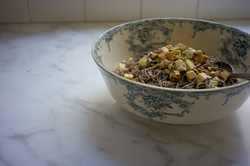 Visit Heidi Swanson's stellar cooking blog, 101 cookbooks, for this Ginger Soba Noodles recipe. Ingredients 12 oz / 340 g Dried soba noodles Ginger Dressing: 1 Tablespoon freshly grated fresh ginger 1 Teaspoon toasted sesame oil zest and juice of 1/2 a lemon 1/2 cup / 2.5 oz / 70 g Chopped white onion 1 Teaspoon mirin (optional) 2 Teaspoons brown sugar or honey 1/2 Teaspoon salt, plus more to taste 3 Tablespoons brown rice vinegar 1 Celery stalk, strings removed, then chopped 1/3 Cup / 80 sunflower oil or untoasted sesame oil 3 Tablespoons of chopped tarragon, plus more to taste A few big handfuls of cubed tofu, pan-fried or baked until golden 1/3 Cup + toasted squash seeds, pumpkin seeds, walnuts, or sesame seeds Read the directions on 101cookbooks.com.  1. The quality or state of being healthy in body and mind, especially as the result of deliberate effort. 2. An approach to healthcare that emphasizes preventing illness and prolonging life, as opposed to emphasizing treating diseases. The Definition of Wellness on Dictonary.com.  Discover three tips to add an inch to your arm in eight weeks from Men's Fitness. Schedule a free coaching session to tackle a new fitness goal this month. |
Archives
January 2022
Categories
All
|

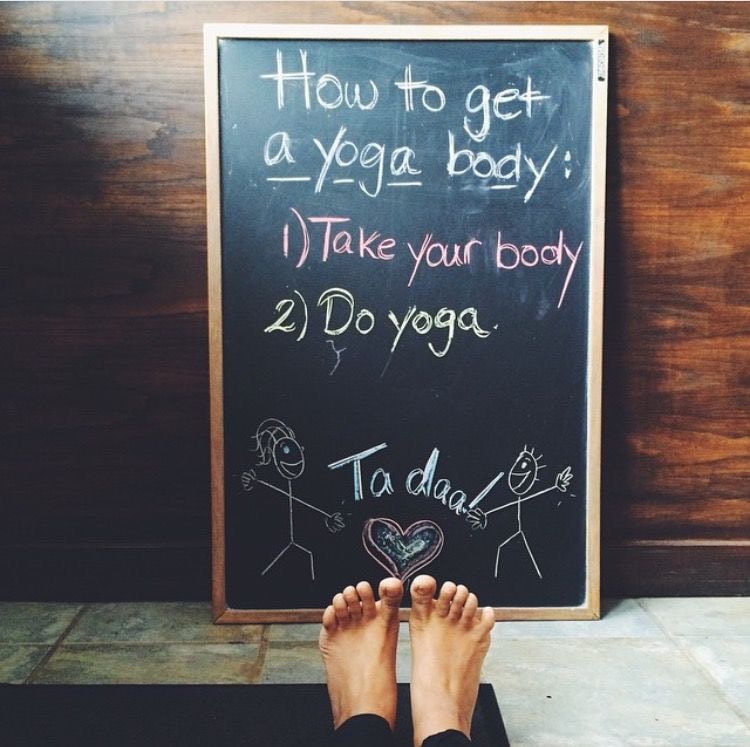
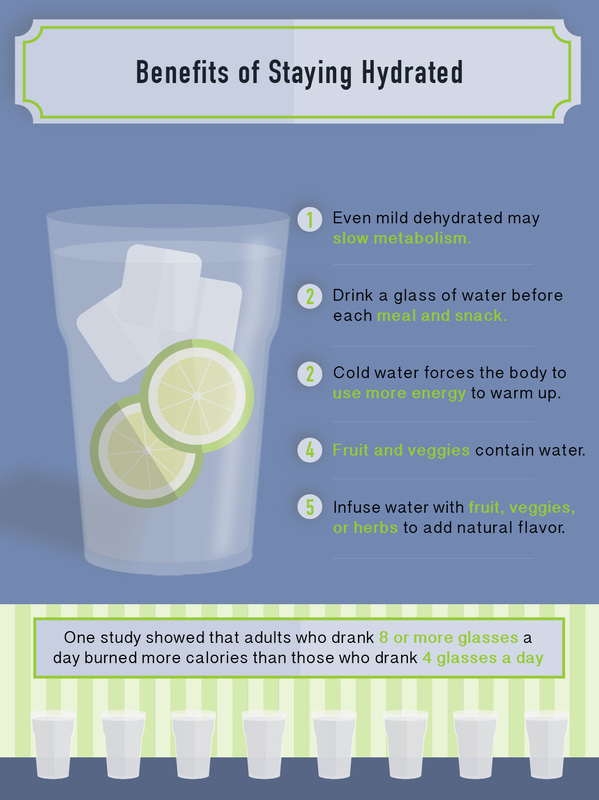






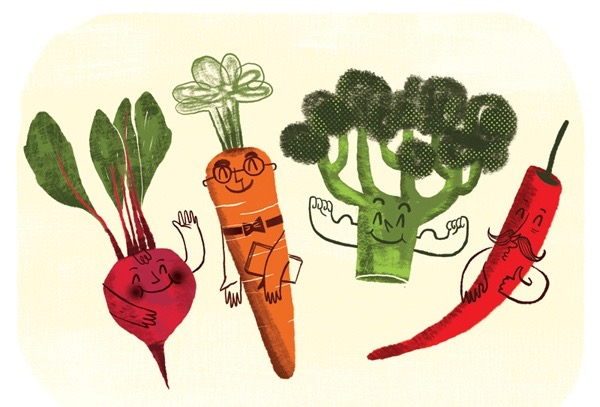
 RSS Feed
RSS Feed